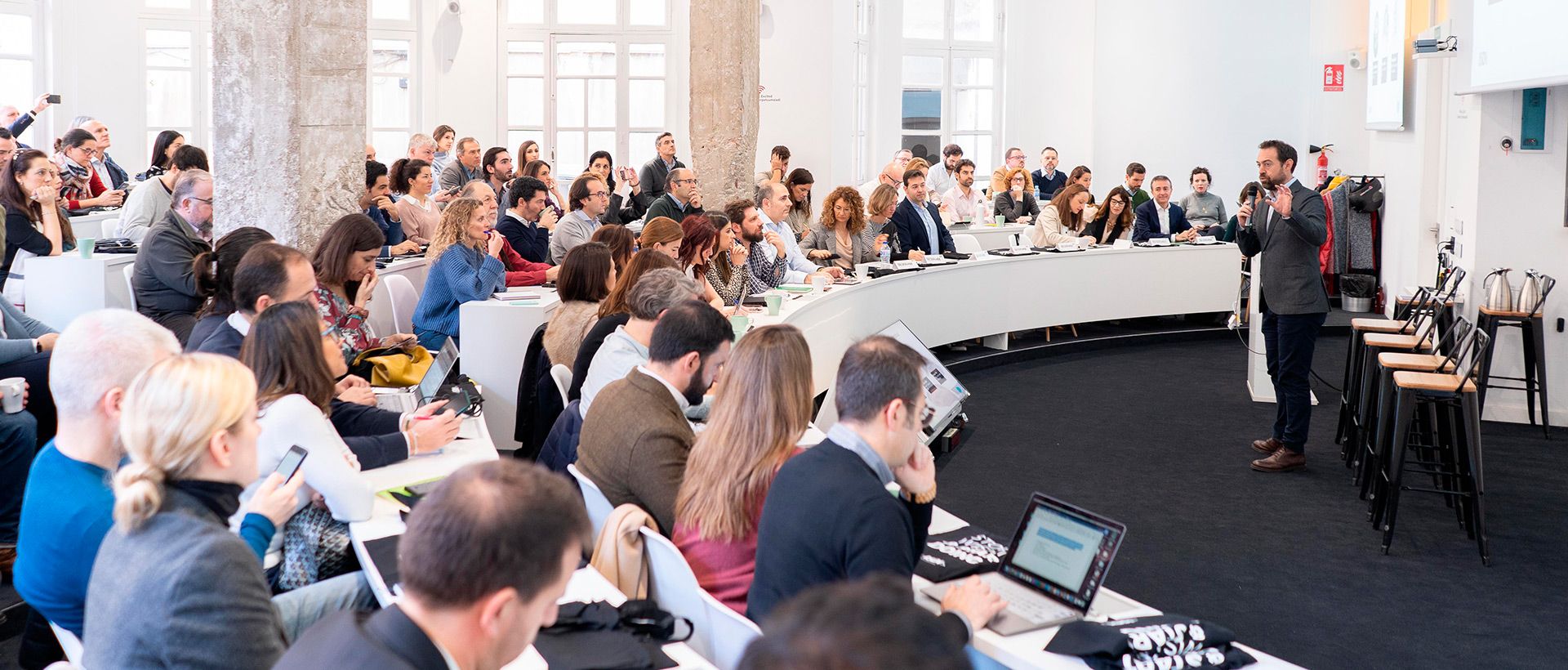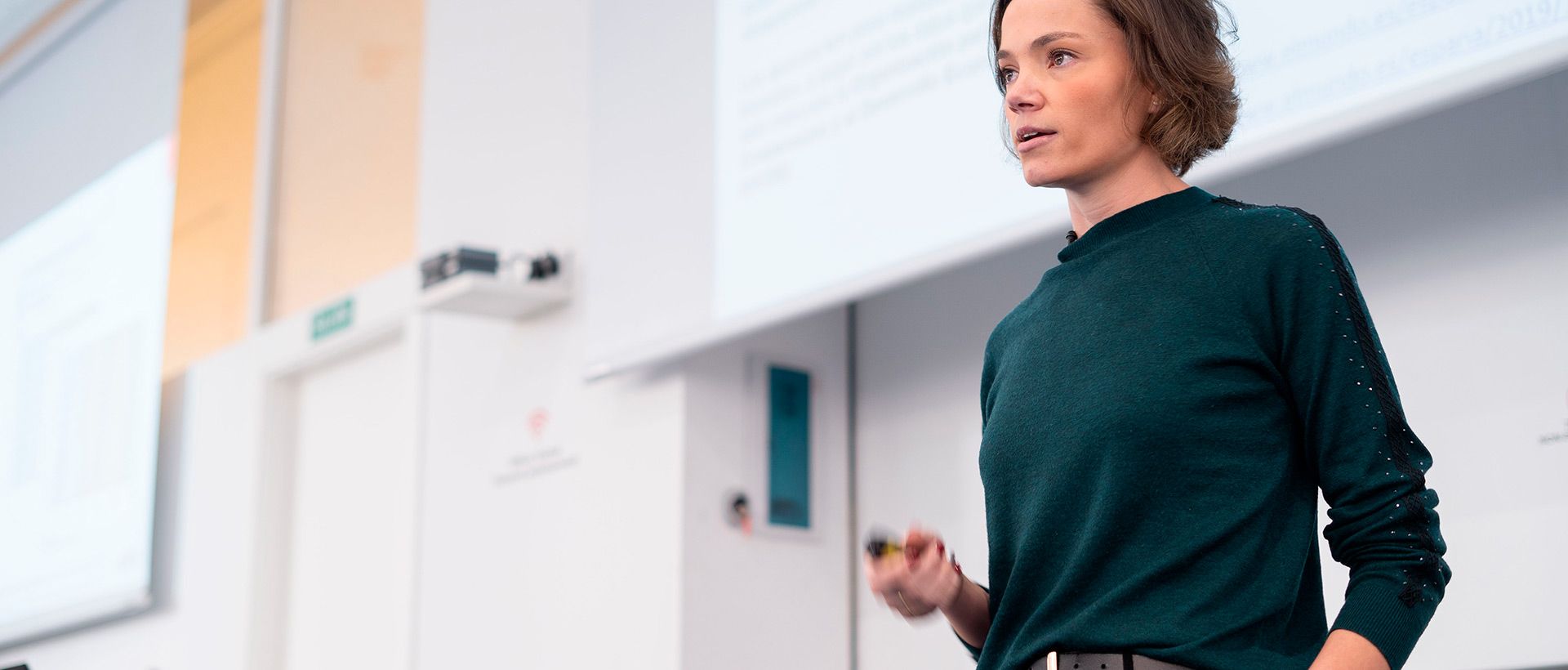Technology as the engine of work 4.0

The fast and constant evolution of technology has resulted in an extraordinary growth of the job market, which demands professionals trained in digital skills constantly evolving and with a high capacity of adaptation to new realities.
Last February 5th took place in ISDI the event “Technology as the engine of work 4.0”, in which several professionals and experts shared their thoughts on the near future of the job market, both in Spain and worldwide.
At the same time, this gathering helped to highlight the last report of the consultancy firm IDC, which reviews the success of Salesforce and its transformational ability, showed after its implementation in thousands of corporations all over the world.
We already talked about one of the key messages of the event in ISDIGITAL.NOW. Jobs linked to technology are growing a 33%. At the same time, we would like to make a different recap today, focusing on several insights we learned from the presentations.
Enrique Polo and the impact of the Salesforce economy
Enrique Polo de Lara, Spain Country Leader & Senior VP at Salesforce, performed a double duty during ISDI’s event: first, he explained the main conclusions of IDC’s report and, at the same time, narrated to the audience how Salesforce, through its Customer-centric vision, is revolutionizing the CRM market and boosting companies towards new challenges.

Salesforce’s mission, tagged with the catchphrase of “doing well and doing good”, is divided into three separate phases.
- Renovate: in Polo de Lara’s own words it would be like “evaluating how to optimize a certain business”.
- Evolve: to achieve this evolution you have to “place the customer in the centre of business”.
- Transcend: here is where the true path begins, destined to acquire new forms of value to the customer.
CRM tools require a smaller investment in maintenance and provides all types of companies with cutting-edge innovation. Because of that, Salesforce is not only a very good option for organizations, but a “great opportunity in the middle and long term for people from all backgrounds”, as Polo de Lara highlighted.
Mainly, Salesforce will create 4.2 million jobs all over the world and generate $1.2 billion in the next few years. Besides, Cloud computing is still growing exponentially, and it represents a 20% of the total amount of investment in IT. For the training and certification of future experts in Salesforce, the company need a “leader in training talent, just like ISDI”.

Fátima Gallo and the new digital skills

We are now living in what it has been called as the Fourth Industrial Revolution, and the tech environment changes at a speed never experienced before. Fátima Gallo, Head of Career Services and Alumni Community at ISDI pointed out that “all these disruptive changes don’t give us the time to adapt we had in the past”.
We will need to learn and study tomorrow, the next day and the next. Because there will be jobs which haven’t got a name yet
In fact, learning digital skills is still a pending subject in European’s CV. We learned from a study conducted by the European Commission, “Digital Economy and Society Index Report 2019”, that a haunting reality lies below: in 2017, a 43% of European population had an insufficient degree of digital skills (a 17% didn’t have any knowledge on this matter). We live in a reality in constant transformation and quick digitization, in which people are at risk of being casted off.
But Fátima Gallo did a twist on this necessity of having a formation to face the long term challenges of the professional world, quoting data from the Institute for the future of work, which show that 85% of jobs from 2030 have not been invented yet. There is a simple conclusion about this: “we will need to learn and study tomorrow, the next day and the next. Because there will be jobs which haven’t got a name yet”, concluded Gallo.
Jorge Villabona and the job market
Until now we saw two essential parts for the course of the event: firstly, Salesforce economy’s job creation capacity, and on the other hand, strictly through the eyes of ISDI, the demand that has risen in the job market of highly trained professionals with strong resources when they are required to acquire new digital skills.

After these contributions, Jorge Villabona, General Manager at ISDI CRM, closed this series of presentations. ISDI CRM, by the way, was born as a joint-venture of the digital business school ISDI and the multinational Salesforce, after the latter injected $1.5 million to train and certify new professionals in this educational centre’s classrooms.

From Villabona’s presentation, we will pinpoint a few highlights below, which summarize the axis of his speech:
- Values over knowledge: “The final goal is a continuous learning process and to understand how business work in the new Digital Era ecosystem”.
- Constant evolution: nearly 9 out 10 LinkedIn users in Spain are considering to take any kind of course or program to improve their skills.
- Personal interest: “permanent curiosity, always above any type of format or any specific skill”.
ISDI’s event had a panel discussion with sector experts, proficient in tech and human resources, and it closed with a round of questions from the audience. We had the opportunity to learn insights form Amparo González, Human Resources Director at Accenture Spain; Alicia Zamora, Human Resources Director at Mediaset; Íñigo López Pérez, Head of Data & Analytics at Atlético de Madrid; y Javier Heitz, CEO at S4G.
Did you find this article interesting? Share it!
Maybe your friends will also enjoy this.




